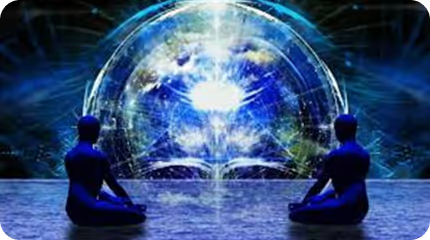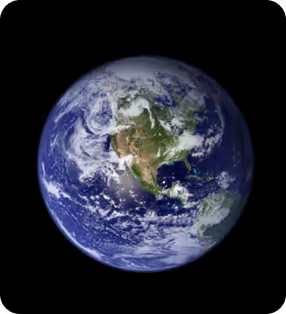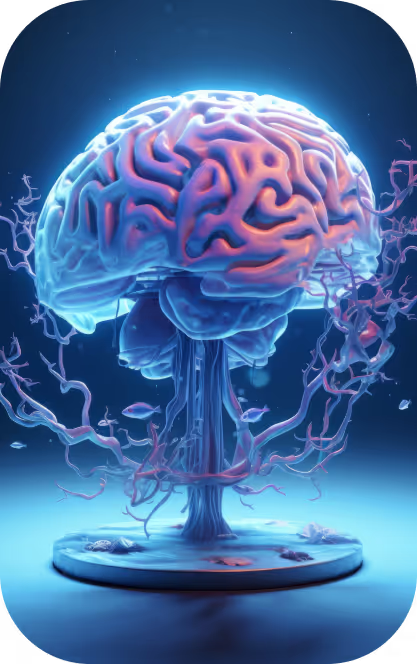



NooLab is a scientific laboratory dedicated to studying the noosphere & AI at the European University. This concept envisions the evolution of consciousness on the planet and the formation of the sphere of human intellect.


A scientific laboratory dedicated to the study of the noosphere can conduct research in various fields. It develops projects aimed at understanding the evolution of consciousness and the interaction of humanity with technology.


NooLab is working to create a 'new world' with 'new people.' At its core is the concept of the 'Intelligent Being.' The new individual can control their thoughts, their mind... they can 'live forever'... Using neural networks to predict and plan their lives, to construct a new society.
The noosphere is a relatively new phenomenon for science. Only at the beginning of the 20th century, the founder of the biosphere concept, the prominent Ukrainian scientist V.I. Vernadsky, envisioned the development of the biosphere into the noosphere. He concluded that the noosphere is a new state of the biosphere, where human intellectual activity becomes the defining factor for its development.
Furthermore, the scientist identified the conditions necessary for the emergence of the noosphere, specifically stating that humanity must become unified in economic and informational dimensions. It is important to note that in the 1920s, French philosopher Edouard Le Roy introduced the concept of the 'noosphere,' and in 1927, together with Pierre Teilhard de Chardin, developed the concept of the noosphere.
Although nearly 100 years have passed since the conception of the concept, the study of the noosphere remains highly relevant in the modern world. It is a key component of the concepts of sustainable development and environmental security.
In essence, the noosphere can be defined as the sum of all intellectual resources and technologies crucial for ensuring the viability and development of human civilization.
a: Visualization of the noosphere
b: V.I. Vernadsky

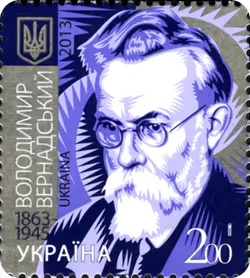
No phenomenon can be fully explored without considering its historiography. Let's briefly outline the historical development of the concept of the 'noosphere.' Ancient thinkers addressed the issue of defining the noosphere. The concept is associated with ancient philosophy, in which 'Nous' is interpreted as the World Mind or Divine Mind, the origin of Consciousness and Self-awareness in the cosmos and humans.
The issue of the noosphere was first raised by Anaxagoras (5th century BCE), who taught that the cosmos, as a intelligently functioning whole, did not emerge from chaos by itself but was ordered by the mighty 'Nous.' Other ancient philosophers considered Nous as a collection of divine minds that exist above the world for eternity.
In Christian theology, Nous is the 'intelligent' nature of angels, the image of God in humans. In both ancient philosophy and Christian theology, Nous is not the ordinary human intellect but a spiritual force with supernatural power. The idea of Nous explains the orderliness of the Cosmos, but human society was never equated with the noosphere, as it consciously did not correspond to its conditions. In modern scientific literature, Édouard Le Roy (1870-1954) is considered the author of the term 'noosphere.' At the end of the 1920s, he referred to the noosphere as the 'spiritual envelope' of the Earth, seeking to 'separate itself from the biosphere, like a butterfly from a cocoon.'.
Recognized as the founders of teachings about the noosphere are Pierre Teilhard de Chardin (1881-1955), a Christian philosopher, founder of the doctrine of 'Teilhardism,' anthropologist, and paleontologist, and Vladimir Vernadsky (1863–1945), a domestic researcher, founder of the theory of biogeochemical processes. Both scientists based their work on the principle of evolution, but interpreted it differently: one from a religious perspective, suggesting the 'reality of existence at the summit of the world above our heads of someone loving' (P. Teilhard de Chardin), and the other from a natural-scientific perspective, presenting the noosphere as one of the stages of Nature's evolution (V. Vernadsky).
The further development of science and scientific thought not only contributed to the development of society, but these processes transformed the economy and all material aspects into a new quality – the noosphere, which today represents the unity of the biological, geological, and intellectual worlds.
a: Anaxagoras (5th century BC)
b1: Pierre Teilhard de Chardin
b2: Edouard Leroy
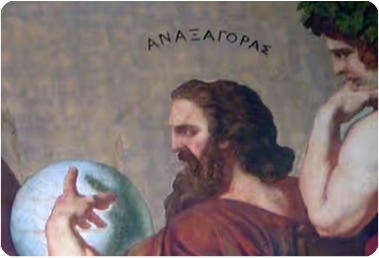
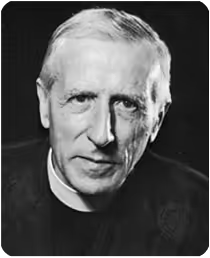
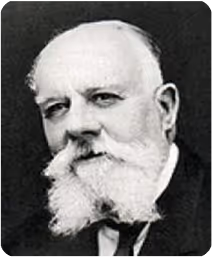
In answering this question, I would like to say that we live in a world where the situation in the economic, social, and political spheres is extremely unstable. In turn, the theory of the noosphere is the most well-grounded concept of "sustainable development," and therefore its study is extremely relevant in these conditions.
In the classical sense, the noosphere is the highest stage of development of the biosphere. It is the sphere of interaction between society and nature, within which rational human activity becomes a determining factor of development, including economic development. The modern noosphere is a concept that describes the state and development of the Earth, in which humanity affects all aspects of nature and ecosystems, including climate, biodiversity, pollution, water and land resources, etc. This is a factor that distinguishes our era from previous ones, as humans have become the main agent of change on planet Earth. In the modern noosphere, humanity feels the need to preserve biodiversity, reduce emissions of pollutants, increase the efficiency of the resources used, etc.
According to the concept of the noosphere, humans are responsible for the development and preservation of the Earth and all its living world. Therefore, the noosphere is an important concept for understanding how humans affect their environment and how natural resources can be preserved for future generations.
a: visualization of the noosphere
b: planet Earth
